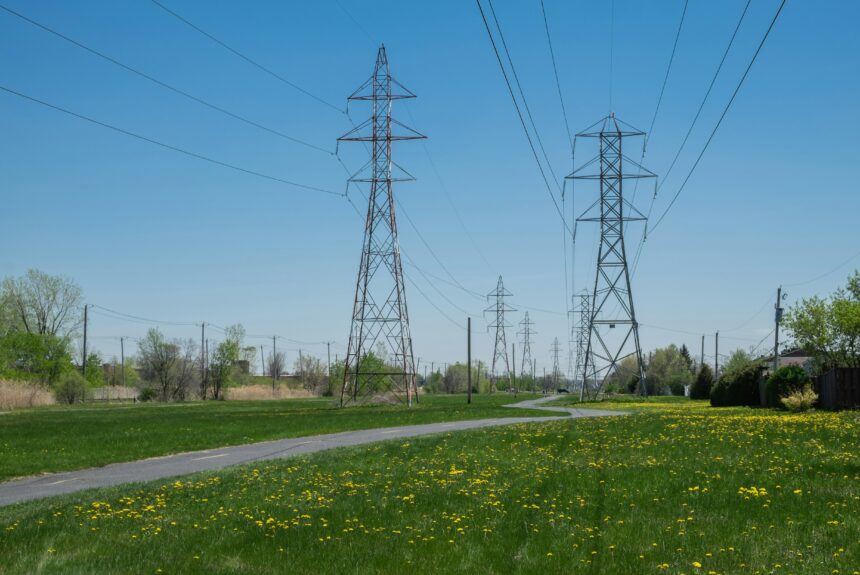As grid demand increases and more clean power comes online, energy storage can be a solution that helps address the intermittency of wind and solar. Toronto-based e-Zinc believes its long-duration energy storage system (LDES) is one answer to this challenge. By leveraging zinc as the foundational metal in its technology, e-Zinc offers can cost-effectively store energy for extended periods.
>>>READ: Rondo Energy: Using Bricks to Decarbonize Industrial Processes
e-Zinc’s energy storage system operates via an electrochemical cell design that dissolves zinc metal in an electrolyte. It consists of three main sections: a charging unit at the top, a discharging unit at the bottom, and a storage unit in between. During the charging phase, zinc metal forms into pellets in the upper charging section, absorbing energy. These pellets are then transferred to the bottom of the cell for storage until discharge is required. When energy is needed, air is dissolved in the lower storage chamber, causing the zinc to dissolve and release stored energy. The zinc is then recirculated to the charging section, where it awaits the next charging cycle.
The results? High energy density at a low cost.
The company has a manufacturing facility in Mississauga, Ontario, where it conducts in-house testing of its technology and is working on accelerating production of its product. In 2022, e-Zinc signed a pilot project deal with Toyota Tsusho Canada to kickstart validation of its novel zinc battery pending a site selection. It also has a partnership with the California Energy Commission.
“Our founder [the late Gregory Zhang], really understood the unique properties of zinc. And in particular, the ability of zinc to store energy,” Laura Strickler, e-Zinc’s vice-president of people and culture, told SustainableBiz. “So it’s really harnessing these unique properties of zinc, to be able to take in energy, hold it there. And then, when we trigger it, to be able to release that energy,” she said.
e-Zinc’s zinc-air batteries offer several benefits over traditional grid-scale batteries derived from lithium. For one, most commercially available batteries offer limited energy storage duration, a characteristic that becomes increasingly problematic with the growing integration of variable energy sources like solar and wind into the electric grid. While lithium-ion batteries are effective for short to medium duration storage (the storage capacity of lithium-ion batteries usually caps at four hours), zinc-air batteries offer more flexible LDES ranging from several hours to multiple days. e-Zinc’s batteries go a step further, offering backup power for one to two days or longer, the company claims.
>>>READ: Could Solid-State Batteries Accelerate Electric Vehicle Adoption?
The production of lithium-ion batteries is also dependent on essential metals like nickel, lithium, copper, and cobalt, materials whose supply chain is predominantly controlled by China. Zinc’s reputation as a readily available, recyclable, stable and non-toxic raw material makes it more sustainable and cost-competitive than other harder-to-extract metals like lithium (zinc is one of the most abundant elements on Earth, U.S. government data shows). According to e-Zinc, every component used in the zinc value chain is recycled or reintegrated into the system. Compared to zinc, nickel, copper, and lithium are more difficult to recycle.
Additionally, due to the unique chemical composition of their electrolytes, lithium-ion batteries are more susceptible to exothermic reactions, which can lead to thermal runaway events. Thermal runaway events are a known safety concern associated with lithium-ion batteries. e-Zinc’s storage solution, in contrast, is inherently immune to thermal runaway due to its water-based electrolytes. The non-flammable properties of its battery cells make the technology ideal for use in a wide range of operating temperatures and environments.
Since its founding in 2012, the company has raised $42.2 million in funding in over 13 investment rounds. Last summer, the World Economic Forum named e-Zinc a 2023 Technology Pioneer. The company is featured in Toyota Ventures’s sustainability-focused portfolio.
As the world looks to implement more clean power, scalable LDES will be needed. Innovative startups like e-Zinc are paving the way for a more affordable and reliable low-carbon energy future.
Nathalie Voit is a freelance content creator and a graduate of the University of Florida. She is an alumni of The Heritage Foundation’s Young Leaders Program.
The views and opinions expressed are those of the author’s and do not necessarily reflect the official policy or position of C3.
